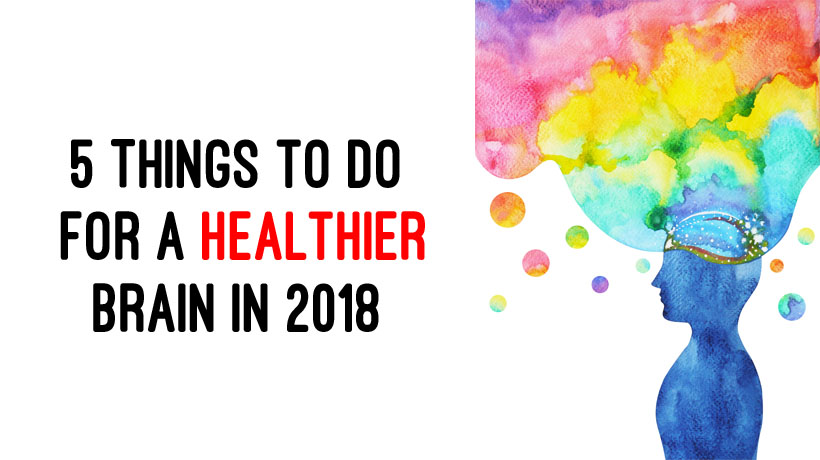Neuroscience has evolved our understanding of how our brains function, allowing us to be more confident in what we can do to increase our brain-function for optimal well being and happiness. Of course, our brains act in concert with the rest of our bodies, working like an orchestra that produces behavioral harmony. This year, resolve to improve your mood, concentration, and energy, reduce your stress, re-balance your hormones and reduce your risk for illness with these five things to do.
Eat a brain-healthy diet
Your brain can benefit when you eat a real, whole “pre-agricultural” intake of seafood, meat, poultry, eggs, vegetables, fruit and nuts. Avoid all grains, such as wheat, corn, rice, oats and soy because they are both low in nutrients and pose a risk to your health. Drink only water or unsweetened water when thirsty, avoiding sodas and fruit juices in all their forms. Avoid processed sugars and starches like processed cereals which cause unnaturally high spikes in blood sugar and insulin levels that destabilize brain chemistry and damage brain cell metabolism. Minimize alcohol, which is toxic to your brain and body.
Learn something new and challenging
Learning new information and skills keep your brain sharp, even in the later years of life. Activities that have the highest value for brain health are those that are novel and complex specifically for you. And they have the most value for your brain. Continually keeping your learning fun and fresh ensures your mind is always expanding and staying sharp.
Take on a regular and enjoyable exercise regimen you can sustain
Exercise performed on a routine basis has been found to reduce the risk of neurodegenerative disease and can improve your energy level, sense of well-being, sleep, and brain health. Engaging in regular exercise also reduces the risk of depression and anxiety. Notice when you tend to drop-off your chosen exercise routine by identifying barriers. Break them down so you can change your routine to the one you can maintain. Sometimes doing too much too soon sets you up to give up.
Engage in new and fun pursuits with friends
Our brains are hard-wired to be social. Friends and colleagues provide opportunities to enable the sharing of experiences, ideas, new learning, challenges, emotions, trust, and understanding. Engaging in new activities with friends often helps develop new life directions, an opportunity to feel appreciated, reasons to laugh, and have fun. Getting too caught up with your phone and social media can feel like you are deeply connected, but being with friends in person is best for your brain.
Learn and practice mindfulness, meditation and sleep
Work demands are evolving at an increasing rate, leaving us with little time to relax and reflect on our work and personal environments. Our brains require time to process information more deeply to gain more benefit from our daily experiences. A lack of a time-out routine can cause chronic stress and have adverse effects on our health and brain function. Take a course in mindfulness and how to meditate. These habits have shown benefits for stress reduction, focusing more on the present, and improvements to thinking. Multiple studies have shown a relationship between spirituality and the immune system. Positive thoughts, maintaining a definite purpose in life and getting at least eight hours of sleep all are essential contributors to brain health, well-being and longevity.



